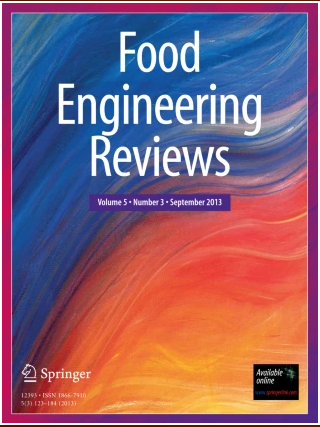Ethylene Synergism Control Using Integrated Cold Plasma Technologies to Enhance Fruit and Vegetable Quality
Abstract
Ethylene is a natural plant hormone crucial in fruit ripening and senescence. Excessive ethylene production can lead to premature spoilage of fruit and vegetables. Cold plasma as a gas purification technology can be used for ethylene synergism control. This review provides a comprehensive overview of ethylene as a plant hormone, including its sources, biosynthesis, and roles. It explores the pathways of plasma generation and examines the chemical properties of plasma. The primary focus is recent progress in cold plasma technology for ethylene synergism control and insights on advanced plasma-integrated catalysts and plasma-integrated food packaging are discussed. Using plasma-integrated catalysts and food packaging shows promise for ethylene control in various applications. The synergistic effects resulting from the plasma-integrated catalyst systems improve the energy efficiency of the process and inhibit the formation of by-products and the cold plasma-integrated food packaging system effectively inhibits ethylene autocatalysis while maintaining the integrity of the produce. Furthermore, the integration of intelligent systems for ethylene monitoring is identified as an area of opportunity for further research and development.

 求助内容:
求助内容: 应助结果提醒方式:
应助结果提醒方式:


